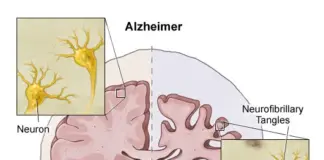
Written By Guest Writer James Dorian,
We are overwhelmed with digital technology, apps, social networks, and emails.
Over the last 20 years, technology has made inroads into every area of our lives, work, governments, health, and businesses. Apps are everywhere. Only the brave or eccentric billionaires attempt a long-term disconnect or go completely without.
New technology has, in so many ways, made the lives of billions around the planet easier. We can transfer money around the world in seconds. We can communicate and work with people in countries thousands of miles away with ease. If we chose, we can work anywhere we want.
Travel is easier. Talking to people in different languages doesn’t require years of study. Learning new skills doesn’t involve going to college and taking on tens of thousands in debt. Whole new industries, sectors, and professions exist as a result of digitalization. New possibilities and opportunities are created every day, thanks to the wonders of technology.
Sadly, with every technological leap forward there is a cost. A dark side to progress. A price we must pay.
Digital transformation has taken its toll on society. One way this is apparent is the negative impact apps, emails, and social networks have on the mental and physical health, emotional well-being, and relationships of those who spend too much time on laptops, tablets, and smartphones.
Benefits of a Digital Detox
Countless studies have been done advocating the benefits of taking a digital detox and unplugging.
Taking some time out, offline, in the real world, without phones, apps, and distractions is liberating and good for our health, according to the experts.
An American Psychological Association surveys show that 43% of Americans are “constant checkers” of emails, social networks, texts, and messaging apps. Even on holidays and weekends, 45 and 40% of Americans say they are constantly or often connected to workplace emails and messages. Both of these survey groups reported elevated levels of stress, especially on days off, and these same respondents “are also more likely to feel stress due to political or cultural arguments online.”
Most Americans — 65%— say that a digital detox is the right way to rebalance their mental health. Although only 28% manage to accomplish and stick to the detox for the amount of time they feel necessary, according to the survey results.
Another psychological survey found that those who are constantly connected to digital devices are unable to complete mental recovery activities that ensure we are refreshed for a new day.
Work–home interference (WHI), such as checking work emails at home, reduces the impact of psychological detachment, relaxation, mastery, and control activities (known as recovery) that we need to do every day. The study found that “being connected to work in the evening hours through smartphones has consequences for the extent to which employees succeed in undertaking recovery activities.”
Another study, by Nottingham Trent University in the UK, has found that the majority of people aged 18 to 33 check their phones 85 times per day, which is twice as often as participants thought. Smartphone addiction is increasingly seen as a serious problem by psychologists and therapists, with cognitive behavioral therapy (CBT) offered as a treatment.
If you’re feeling overwhelmed, checking too many apps, spending too long on your computer, smartphone or tablet, then it’s time to take back control. Here are a few simple steps you can implement right away to regain some freedom.
Regain freedom and control over your digital life
#1: Stop taking devices to bed
Beds are for sleeping and sex, not work. Not checking Instagram, Facebook, YouTube, Snapchat, and a dozen other apps. Distractions, whether on your phone or laptop, prevent us from sleeping.
Even when you turn the brightness down, or switch off push notifications during the hours you normally sleep, knowing that a phone or other digital device is in the bedroom is not going to help you sleep. When we sleep less, our productivity, ability to focus, make decisions, and stay calm is reduced. We increase our anxiety levels when we don’t sleep enough, which means digital devices aren’t good for us in the bedroom.
Pro tip: Getting an alarm clock is a great way to avoid using your phone to wake up. Not only does this mean it isn’t needed in the bedroom, but you won’t wake up and instantly check email and social networks.
#2: Put phones away when talking to others
It doesn’t matter how busy you are — when we are in the company of others, a smartphone is an unnecessary and rude distraction.
When people take the time to see each other in-person, it benefits no one when notifications cause interruptions. It also signals that they’re not as important as whatever distraction has just pinged through to your phone, potentially damaging working relationships and friendships.
#3: Delete the apps you don’t need
Everyone has apps they don’t need or use. Decluttering not only frees up space on disk drives, but creates mental space too. Going through your Mac, iPad, and iPhone, and deleting apps will save you some FOMO (fear of missing out) stress, since you won’t feel the urge to check apps that you don’t need anymore.
Apps that have a negative impact on your mental health, such as Instagram or Facebook, where people post positive highlights of their lives aren’t great places to scroll for those who are struggling. Take a time-out to look after yourself.
Pro tip: One app worth removing, or at least silencing afterhours, is email. Work and business email has a negative impact on your mind’s ability to recover and repair itself, in the same way that going to the gym without enough recovery time will negatively impact your physical health and muscles.
#4: Turn off push notifications
Push notifications are a constant distraction. Switching them off, or at least turning them off during sleeping and key working hours — when distractions are unwelcome — will have a positive effect on your mental health, productivity, and sleep.
#5: Use positive apps to improve productivity
Not all apps have a negative effect. Some actively support and improve our ability to work, sleep, and focus.
You can use apps that will help you get more things done during the work day. They are worth exploring to ensure you can regain digital control and use your devices in a way that won’t negatively affect your mental health, sleep, and productivity.
Key Takeaways
Technology has taken over. Apps and software was created to solve problems. Computers, Macs, tablets, and smartphones were designed to serve us, not become a self-defeating distraction. Whether you commit to unplugging for a fixed period of time — days, weeks, or several hours every day — you are regaining some control.
A detox will give you the confidence to switch off a few hours every day, delete unnecessary apps, and block push notifications. With the right apps supporting this effort to take back control, you can use your phone and devices without feeling overwhelmed and addicted.
Short bio

James Dorian is a technical copywriter at Setapp. He is a tech geek who knows a lot about modern apps that will make your work more productive. James reads tons of online blogs on technology, business, and ways to become a real pro in our modern world of innovations. Follow him on Twitter.
Disclaimer: We at Prepare for Change (PFC) bring you information that is not offered by the mainstream news, and therefore may seem controversial. The opinions, views, statements, and/or information we present are not necessarily promoted, endorsed, espoused, or agreed to by Prepare for Change, its leadership Council, members, those who work with PFC, or those who read its content. However, they are hopefully provocative. Please use discernment! Use logical thinking, your own intuition and your own connection with Source, Spirit and Natural Laws to help you determine what is true and what is not. By sharing information and seeding dialogue, it is our goal to raise consciousness and awareness of higher truths to free us from enslavement of the matrix in this material realm.
 EN
EN FR
FR



























Great article. I’m fairly good but learned a few new tips. Just turned off all
My push notification. Thank you.